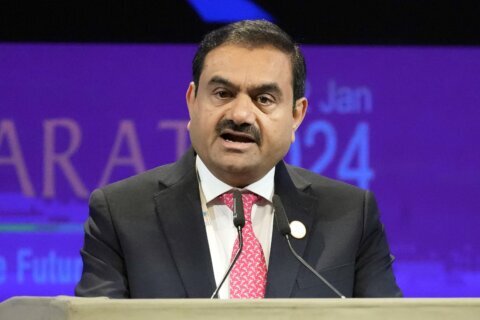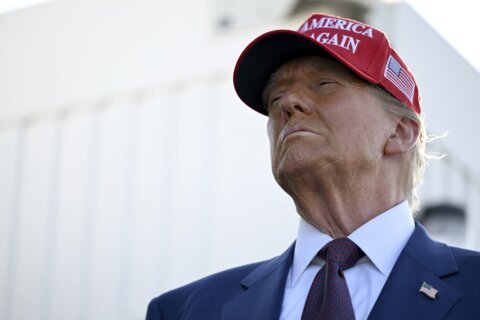Whether through regulating fees or influencing consumer protections, presidential administrations can affect your everyday finances like bank accounts you open, the savings you accrue and the loans you take out.
“It’s no secret that the election swings over the last 10 to 15 years have been very dramatic at both the presidential and congressional levels,” says Lindsey Johnson, president and CEO of the Consumer Bankers Association. “We’ve had institutions that were supposed to be a bit more inoculated from those huge election swings, like the Consumer Financial Protection Bureau, also become subject to these political swings more recently.”
In the upcoming 2024 election, the stakes are high, and the candidates favor vastly different approaches to financial regulation. Which candidate wins the election matters greatly to everyday banking. Let’s explore what we know and what we could expect in the banking sector with either candidate.
How Presidential Elections Shape Banking Policies
Presidents influence the economy, including the banking sector. One major way a president can influence banking is by appointing a new director of the Consumer Financial Protection Bureau.
The CFPB is a government agency that regulates financial institutions and other entities such as credit bureaus. It supervises and accepts consumer complaints about financial institutions. It’s also tasked with educating consumers and taking enforcement action against unlawful activities by financial institutions, such as banks that claim to offer interest-free payments but don’t follow through with that promise.
CFPB directors can be appointed by the president but must be confirmed by the Senate. Former CFPB director Kathy Kraninger was appointed by then-President Donald Trump and confirmed by the Senate in 2018. Although Kraninger’s five-year term could have lasted until 2023, she resigned within hours of President Joe Biden’s swearing-in ceremony at his request .
Kraninger was replaced by current CFPB director Rohit Chopra, appointed by Biden in 2021 for a five-year term that ends in 2026. As CFPB director, Chopra has led enforcement actions, pushed back against banking fees like those charged for non-sufficient funds, and developed an open banking proposal that would boost competition and make switching banks easier by allowing customers to easily transfer personal data between banking providers.
The Supreme Court ruled in 2020 that the president can fire the CFPB director at will, which essentially allows presidents to fire and hire new CFPB directors — as long as the Senate confirms the new appointee.
The outcome of the 2024 election is likely to influence CFPB leadership again.
With a Harris win, Johnson expects there’s a chance Chopra may stay on in his current appointment through 2026, but she could also see an acting director stepping up to fill the role.
Chopra would likely be gone on day one if Trump wins, she says. “He was appointed by President Biden as a political appointment.”
Beyond the CFPB, we could see a fresh look at housing policy in the next administration, says Jamie Strayer, creator and executive producer of “Opportunity Knocks” on PBS, a show about personal finance and economic mobility. “Pro-consumer financial services providers such as credit unions, small banks and possibly fintechs could be called upon to provide more, and more affordable access to housing.”
Presidential policies can affect bank customers regarding fees, account management, access to credit and deposit insurance. For example, both candidates plan to cut fees.
Banking Policies: Harris vs. Trump
How would either candidate affect banking if elected? Strayer says we don’t have many specific details from the candidates, who are likely both trying not to alienate voters with concrete policy details. However, we can get an idea by examining their policy proposals and actions in the White House as president and vice president.
Kamala Harris
“In a Democrat-majority Congress and a Kamala Harris presidency, there will be efforts to defend the CFPB and possibly expand consumer protections,” says Strayer. “Republicans look at the Bureau with skepticism, if not overt hostility, and will likely try to pare back most of the current CFPB agenda.”
Under a Harris presidency, we could expect an increase in consumer protections and loan assistance for certain groups. She could depart somewhat from Biden-era banking, which Johnson says has had an aggressive regulatory posture toward banks.
“(Harris) has been very vocal about wanting to not carry forward some of the policies under the current administration, about wanting to be more moderate, speaking to all Americans,” says Johnson. “We know that the Harris campaign is very focused on middle and lower-income Americans and how to support them.”
Harris has vowed to reduce consumer banking costs by banning hidden fees and surprise late charges. As vice president, Harris worked with the CFPB on an agenda to address the burden of medical debt, which clarified CFPB guidance on prohibiting illegal medical debt collection practices such as collecting on inaccurate or legally invalid medical debts. Harris also supports a CFPB action that would remove medical debt from credit reports.
The Harris-Walz campaign’s economic policy outline would launch a small business expansion fund that would enable community banks and community development financial institutions to cover small business loan interest costs while small businesses expand. Harris’s plan would also offer up to $25,000 in down payment assistance to first-time homebuyers who qualify.
As California’s attorney general, Harris obtained an $18 billion relief settlement in 2012 for homeowners hit by the foreclosure crisis. She also championed a 2012 California Homeowner Bill of Rights to extend mortgage and foreclosure protections to California homeowners. In 2016, the California Attorney General’s Office under Harris criminally investigated Wells Fargo over the widespread establishment of unauthorized customer accounts, which led to a $148.7 million settlement in 2018 after she left office.
Donald Trump
In a second term, Trump would likely favor banking deregulation with an eye on economic growth.
“Trump really had a deregulatory agenda as part of his administration’s whole government approach to the economy in his first administration,” says Johnson. “We know that the Trump administration has been very focused on pro-growth, pro-competition, and making sure that America can lead on an economic front. You cannot do that without the banking system being globally competitive.”
Trump has been vocal about capping credit card interest rates if he wins the election. He has also indicated he would like a more direct role in how the Federal Reserve sets interest rates and policies. As president, Trump established the Task Force on Market Integrity and Consumer Fraud, which brought together U.S. Attorneys Offices and other components of the Department of Justice with other enforcement agencies to fight fraud affecting American citizens.
In 2018, Trump rolled back Obama-era regulations for banks with at least $50 billion in assets established under the Dodd-Frank Act. These regulations require annual Federal Reserve stress tests, maintenance of certain capital levels, liquidity and a plan for dissolution if a bank fails. Although these regulations are still in place for very large banks, Trump’s rollback increased the threshold from $50 billion in assets to $250 billion. Among the banks affected by the rollback was Silicon Valley Bank, which had $209 billion in assets at the end of 2022 and collapsed in 2023, marking one of the biggest bank failures in U.S. history and triggering a wider banking crisis.
The Heritage Foundation’s Project 2025 plans include proposals to return the U.S. to using commodity-backed money and making major changes to the Federal Reserve, such as removing its lender-of-last-resort function for troubled banks. This could lead to abolishing the central bank in favor of free banking. The project mandate also recommends limiting the powers of the CFPB and ultimately abolishing the agency. While Trump has distanced himself from Project 2025, it was partly written by former Trump administration members.
“It might seem like you’re getting a sequel if you’re getting a President Trump 2.0 or Vice President Harris becoming president,” says Johnson. “But in both scenarios, I think that there are a lot of questions, a lot of unknowns about how each would operate in the next four years.”
More from U.S. News
Does It Matter for Your Credit Card Who Wins the Election?
Savings Interest Rate Forecast
How to Prepare Your Savings for Falling Interest Rates
When It Comes to Banking, Does It Matter Who Wins the Election? originally appeared on usnews.com







